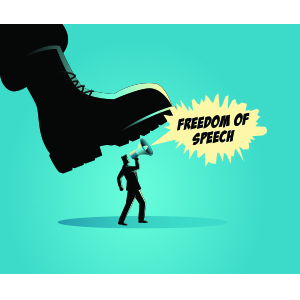Public opposition, more specifically war, is always crucial to frame public dialogue in a democratic society. It’s the First Amendment that covers this right to opposite views. It enables citizens to speak against governments for or against wars and to advocate for peace. This right has faced extraordinary attacks time and again through history, as during World War I, when anti-war activists were persecuted and imprisoned over their beliefs. That bleak chapter underlines the tension between national security and civil liberties, reminding us that the right to dissent is often most critical during times of conflict.
Today, platforms like ANTIWAR.COM and The American Conservative continue to provide an essential space for robust antiwar voices that are so often suppressed by the mainstream media. The banishment of these perspectives raises crucial questions regarding the character of modern dialogue. This has been caused by various factors such as media consolidation, leading to a few large corporations that often shy away from narratives not in the interests of either the government or their corporate enterprise(s). Because of this, many opinions of dissent are usually not widely heard. Also, under the current political climate, framing dissent as unpatriotic may be used to discourage mainstream outlets from amplifying anti-war views. Smaller independent antiwar outlets generally have very minimal budgets, which make it hard for them to compete for visibility with other larger media outlets.
Engagement with these less-widely-used platforms is of great importance to a wider range of views about military action. This helps in the healthy exercise of democracy whereby many opinions get to be aired and considered. Not only does this search for contrarian voices create valuable and serious discourse, but it is also, in itself, an alternative to accountability, which requires all citizens to closely judge the actions of their government. The First Amendment, in conclusion, has for its recipients not only widely popular speech but also speech that is in dissent, allowing for active peacemaking in an always-turbulent world. Finding and cultivating these voices is essential for a strong democratic society.




No comments:
Post a Comment